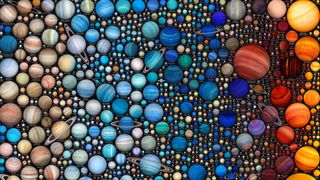Astronomy
Explore Astronomy
Latest about Astronomy

Astronomers measure 'warp speed' of Milky Way galaxy
By Keith Cooper published
The Milky Way is warped, possibly as the result of a collision with another galaxy billions of years ago. Studying this warp could reveal more about the structure of our galaxy's hidden matter.
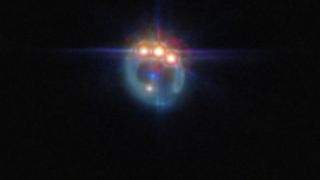
James Webb telescope spies bejeweled 'Einstein ring' made of warped quasar light
By Harry Baker published
New photos from the James Webb Space Telescope show off the bewitching beauty of the warped quasar RX J1131-1231, which is adorned with four bright spots birthed by mind-bending space-time trickery.
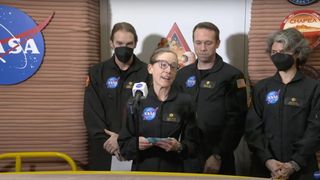
NASA's 1st year-long mock Mars mission wraps up in Houston
By Mike Wall published
Four volunteers exited a mock Mars habitat at NASA's Johnson Space Center on July 6, bringing the agency's first year-long simulated Red Planet mission to an end.
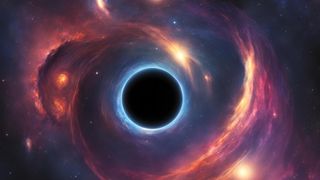
Study finds black holes made from light are impossible — challenging Einstein's theory of relativity
By Andrey Feldman published
New theoretical research finds that it's impossible to form a black hole with the energy of light particles alone, poking a hole in Einstein's theory of general relativity.

'Eyeball' planet spied by James Webb telescope might be habitable
By Ben Turner published
Located 50 light-years from Earth, the beady-eyed exoplanet LHS 1140 b could be a perfect candidate for discovering liquid water outside the solar system, new research suggests.
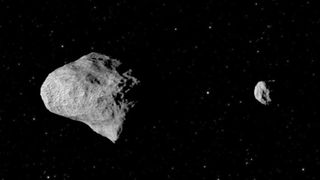
NASA discovers secret moon orbiting nearby 'planet killer' asteroid after recent close approach to Earth
By Harry Baker published
New NASA images of a mountain-size, "planet killer" asteroid that made its closest approach to Earth last month have revealed a surprise companion circling the massive space rock.
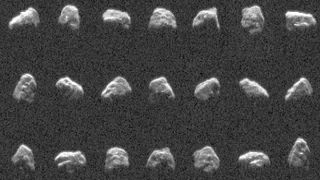
Earth's gravity knocked pyramid-size asteroid off course during recent ultra-close flyby, NASA images reveal
By Harry Baker published
New photos of the recently discovered asteroid 2024 MK, which zoomed past Earth in late June, reveal that the massive space rock's orbit has been significantly altered by its close approach to our planet.
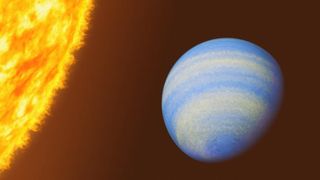
James Webb telescope reveals rare, 'rotten egg' atmosphere around nearby hell planet
By Harry Baker published
The James Webb Space Telescope revealed that the hot Jupiter exoplanet HD 189733 b, located just 64 light-years from Earth, has an atmosphere full of hydrogen sulfide, meaning it likely smells of rotten eggs.
Sign up for the Live Science daily newsletter now
Get the world’s most fascinating discoveries delivered straight to your inbox.

